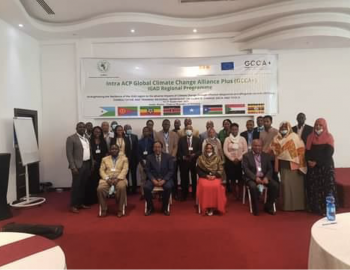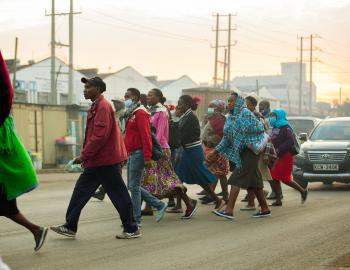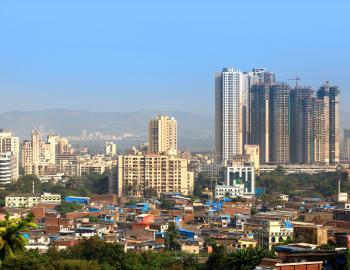REPORT: Results-based reporting for REDD+
REPORT: Results-based reporting for REDD+
The Coalition for Rainforest Nations (CfRN) and CDKN have released a new publication to present their joint initiative: the Reporting for Results-based REDD+ project.
REDD+ stands for reduced emissions from deforestation and forest degradation and also includes conservation, sustainable management of forests and enhancement of forest carbon stocks. It refers to a mechanism developed by countries under the United Nations Framework Convention on Climate Change (UNFCCC) to create financial value for the carbon stored in forests, by offering incentives for developing countries to reduce emissions from forested lands. This provides developing countries with the opportunity to receive results-based payments for actions to conserve and restore forest lands.
The Reporting for Results-based REDD+ project, or RRR+ for short, is a three-year project to build capacity for measuring reductions in greenhouse gas emissions and enhancement of carbon stocks in agriculture, forest and other land use in 21 tropical and subtropical forest countries.
It is working in: Belize, Cameroon, Congo, Democratic Republic of Congo, Dominica, Dominican Republic, Fiji, Gabon, Ghana, Guyana, Kenya, Liberia, Mozambique, Pakistan, Panama, Papua New Guinea, St Lucia, Tanzania, Uganda, Vanuatu and Vietnam.
Why reporting for results-based REDD+ is important
The Paris Agreement on climate change, signed by 195 governments in December 2015, commits countries to holding average global temperature change at less than 2 degrees Celsius above pre-industrial levels and as close to 1.5 degrees as possible. Governments agreed to significantly cut global greenhouse gas emissions in order to achieve this target.
Greenhouse gas emissions from agriculture, forestry and other land uses make up around one quarter of all global emissions, according to the Intergovernmental Panel on Climate Change (IPCC). Halting deforestation and speeding up reforestation and afforestation are crucial if the world is to stay within the global temperature limit. The majority of deforestation today occurs in the developing world and current policies, law enforcement and finance flows are inadequate to reverse this trend. REDD+ initiatives can address this crucial gap by helping to unlock finance for forest conservation.
REDD+ initiatives are not yet implemented on a large scale for several reasons. One is a lack of systems to accumulate data. Another is capacity: many developing countries have gaps in systems to analyse and accurately report on emissions from agriculture, forest and other land uses. If countries seek to receive results-based finance, they must submit greenhouse gas inventories to the UNFCCC, requiring accurate measuring and reporting.
The Reporting for Results-based REDD+ project will assist countries to create the emissions inventories, build their skills to measure and report on forest- and land-based emissions in the long term and help set them up to receive results-based REDD+ payments.
Our activities
During the three-year programme, 2017-20, technical specialists will take part in training programmes that are tailored to their needs. By the end, they will expect to be proficient in the methods endorsed by the IPCC, the international authority on reporting emissions and carbon stocks.
They will be able to produce more technically robust inventories of greenhouse gas emissions from forest and land use in their countries. They will also have assessed how to strengthen the institutions, systems and processes for reporting land-based emissions.
Participating countries will have received support to report their greenhouse gas emissions and removals to the UNFCCC via the official process: the National Communication and Biennial Update Report cycles.
Participants from selected countries will also have had the chance to exchange their first-hand knowledge and experience with specialists from other forest nations – enabling them to share best practices and strategies for overcoming challenges with accessing data.
Financial support for the RRR+ project is provided by the Government of Norway’s Ministry of Foreign Affairs and by its Ministry of Climate Change and Environment.
More about the CfRN
The CfRN is a non-profit organisation that promotes environmental sustainability while creating opportunities for economic advancement for developing countries with tropical rainforests, including least developed countries. The CfRN works with over 50 forested developing countries and is headquartered in New York, with a technical team based at the Food and Agriculture Organization (FAO) in Rome.
The CfRN was founded in 2004 by the Heads of State of Papua New Guinea and Costa Rica. Over the last decade, the Coalition has worked with high-level officials to design the Forest Carbon Partnership Facility of the World Bank as well as the UN-REDD Programme.
More about CDKN
For more about CDKN, please visit our ‘about’ page: www.cdkn.org/about
Picture: Adam McKenzie



